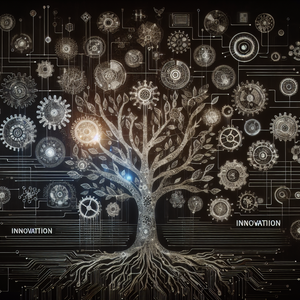The Hidden Dangers of YouTube to MP3 Converters

One of the most significant dangers posed by online YouTube to MP3 converters is the risk of malware and viruses. Many free converter websites are riddled with intrusive advertisements, pop-ups, and potentially harmful software that can infect users' devices. A study by the cybersecurity firm McAfee found that nearly 60% of free music download sites harbor malware. This means that users often unknowingly download malicious programs while attempting to convert a video, leading to compromised personal data, system slowdowns, and unauthorized access to sensitive information. For instance, a user might think they are merely converting a song when, in reality, they are exposing their device to a Trojan horse that could steal their financial information.
Data Privacy Issues
In an age where data privacy is a top concern, the use of online converters raises significant doubts regarding personal information security. Many converters require users to upload files or provide email addresses to access downloads. This data can be harvested and sold to third parties, resulting in targeted advertising and even identity theft. According to a survey by the Electronic Frontier Foundation, over 40% of users are unaware of how their data is handled when using free web services. Such ignorance can lead to severe consequences, especially if personal data falls into the wrong hands.
Copyright Infringement
Another critical issue surrounding YouTube to MP3 converters is the legal implications of copyright infringement. Most YouTube videos fall under copyright protection, and converting them into MP3 files without permission from the content creators is often considered illegal. The Recording Industry Association of America (RIAA) emphasizes that unauthorized copying and distribution of copyrighted music can result in substantial fines or legal action against violators. Thus, while the convenience of conversion may seem appealing, users must recognize the serious legal risks that accompany this practice.
Navigating the Digital Landscape Safely
To mitigate the risks associated with YouTube to MP3 converters, users should prioritize reputable services. Established platforms with a history of safe usage and transparent privacy policies are preferable. Researching user reviews, checking for security certifications, and seeking recommendations from trusted sources can help identify trustworthy converters. For example, services like Spotify and Apple Music offer legal streaming options that respect copyright laws and provide users with a safe listening experience.
Utilize Antivirus Software
Installing robust antivirus software on devices can provide an additional layer of protection against malware and viruses. Regular scans and real-time protection features can help detect and eliminate threats before they inflict harm. Additionally, enabling firewall settings can help block unauthorized access attempts and bolster overall security.
Respect Copyright
To remain within legal boundaries, users should consider alternative methods of music consumption. Many artists and record labels offer music for purchase or through licensed streaming platforms, ensuring that creators receive appropriate compensation for their work. Exploring these legal avenues not only supports artists but also protects users from potential legal ramifications. Platforms like Bandcamp and SoundCloud provide opportunities for discovering independent artists while respecting copyright laws.
While the convenience of converting YouTube videos to MP3 files may be tempting, it is essential to recognize the hidden dangers that accompany this practice. From malware and data privacy issues to the risk of copyright infringement, users must navigate this digital landscape with caution. By prioritizing reputable services, utilizing antivirus protection, and respecting copyright laws, music lovers can enjoy their favorite tunes while minimizing risks. As we continue to embrace the digital age of music consumption, being informed and cautious is crucial in ensuring a safe and enjoyable listening experience. Ultimately, the allure of instant gratification should not overshadow the importance of user safety and legal compliance in the world of digital music.
Cybersecurity Analyst
Large tech companies (e.g., Google, Microsoft), financial institutions, and cybersecurity firms
Core Responsibilities
Monitor network traffic and identify potential security threats, including malware and data breaches.
Conduct vulnerability assessments and penetration testing to evaluate security measures and recommend improvements.
Develop and implement security policies and procedures to protect sensitive information.
Required Skills
Proficiency in cybersecurity tools such as intrusion detection systems and antivirus software.
Understanding of networking protocols, firewalls, and encryption methods.
Relevant certifications (e.g., CISSP, CEH, CompTIA Security+).
Digital Rights Manager
Music labels, film studios, and media companies
Core Responsibilities
Oversee and enforce copyright policies related to digital content, ensuring legal compliance for music and video distribution.
Collaborate with artists, record labels, and platforms to negotiate licensing agreements and manage intellectual property rights.
Monitor online platforms for copyright infringement and initiate takedown requests as needed.
Required Skills
Strong understanding of copyright law and digital media regulations.
Excellent negotiation and communication skills to liaise with various stakeholders.
Familiarity with digital rights management (DRM) technologies and tools.
Data Privacy Officer
Corporations across various industries, government agencies, and non-profit organizations
Core Responsibilities
Develop and implement data protection policies to ensure compliance with regulations like GDPR and CCPA.
Conduct regular audits of data handling practices and assess risks to user privacy.
Serve as the point of contact for data subjects regarding their rights and data inquiries.
Required Skills
In-depth knowledge of data protection laws and best practices.
Analytical skills to assess and mitigate data privacy risks.
Certification in data protection or privacy (e.g., CIPP/E, CIPM).
Software Quality Assurance Engineer
Tech companies, software development firms, and IT consultancies
Core Responsibilities
Design and execute test plans and test cases for software applications, focusing on security and usability.
Identify, document, and track software defects, particularly those related to vulnerabilities like malware exposure.
Collaborate with developers to ensure adherence to security best practices during the software development lifecycle.
Required Skills
Experience with automated testing tools and frameworks (e.g., Selenium, JUnit).
Strong understanding of software development processes and methodologies (e.g., Agile, DevOps).
Knowledge of security testing techniques (e.g., penetration testing, fuzz testing).
Content Compliance Specialist
Social media platforms, content streaming services, and digital media companies
Core Responsibilities
Review user-generated content to ensure compliance with copyright laws and platform policies.
Develop guidelines and training materials to educate users about the legal implications of content sharing.
Work with legal teams to address copyright infringement issues and enforce platform policies.
Required Skills
Understanding of copyright law, intellectual property rights, and digital content regulations.
Strong analytical skills to assess compliance issues and recommend corrective actions.
Excellent communication skills to provide clear guidance to users and stakeholders.


